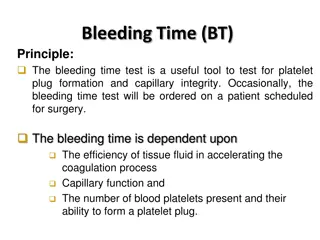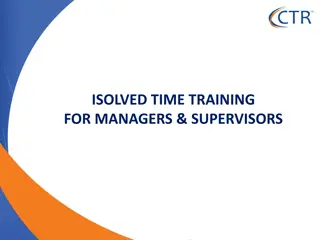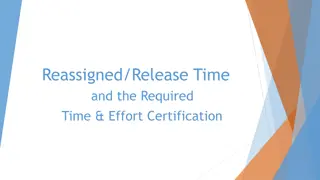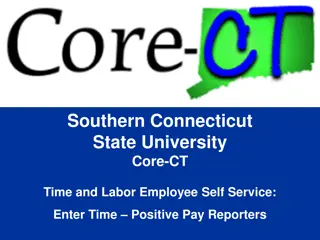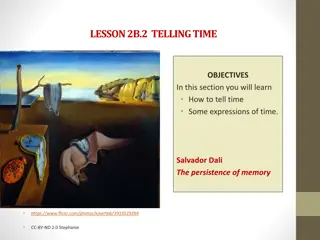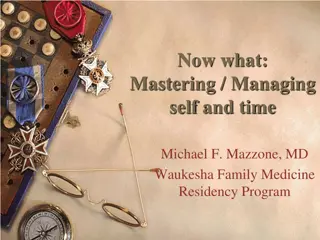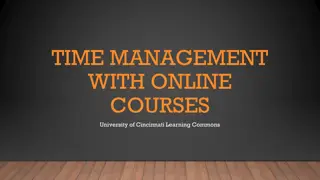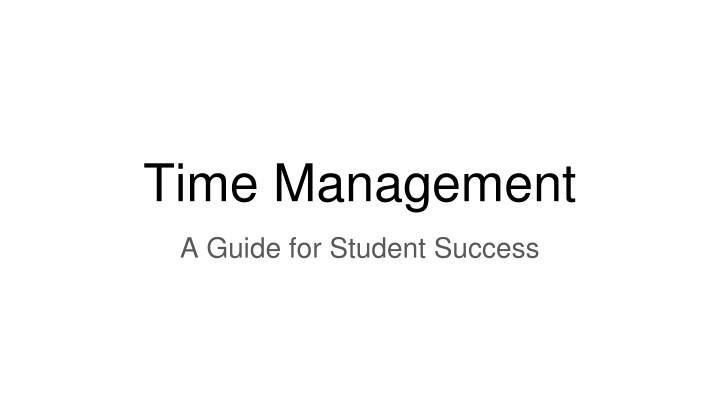
Effective Student Time Management Strategies for Academic Success
Discover essential time management tips for students to reduce stress, boost academic performance, and maintain a balanced lifestyle. Learn how to set goals, prioritize tasks, utilize time management tools, avoid procrastination, and stay motivated. Find the perfect balance between academic, personal, and social life for student success.
Download Presentation

Please find below an Image/Link to download the presentation.
The content on the website is provided AS IS for your information and personal use only. It may not be sold, licensed, or shared on other websites without obtaining consent from the author. If you encounter any issues during the download, it is possible that the publisher has removed the file from their server.
You are allowed to download the files provided on this website for personal or commercial use, subject to the condition that they are used lawfully. All files are the property of their respective owners.
The content on the website is provided AS IS for your information and personal use only. It may not be sold, licensed, or shared on other websites without obtaining consent from the author.
E N D
Presentation Transcript
Time Management A Guide for Student Success
Why it Matters - College pulls your focus in many directions, so it is important to make the most of your time outside class. Effectively managing your time leads to positive outcomes that will reduce your stress levels, improve academic performance, and create a balanced social life. -
Set Goals - Create some goals, both short term and long term. These can be goals for the semester, your career, or a particular assignment you have coming up. Start by asking yourself questions such as: - What do I want my GPA to look like? What do I want to learn from this research paper? What skills do I want to develop for my future career? - You goals should be specific, and most importantly, achievable.
Prioritize and Create a Schedule - Categorize what is urgent, what is important, and what is nonessential. Build your schedule around these categories. Prioritize tasks day by day to figure out what you want to accomplish within the day, week, month, or semester. Build your calendar to include your classes, time dedicated to studying, and include break times. Balance personal, academic, and social time. Be honest with yourself about how much of your schedule should be dedicated to each activity and commit to the appropriate amount of time. - - -
Time Management Tools and Avoiding Procrastination - - Use tools that work best for you. There is no one right way to get organized. If you prefer digital methods, Google Calendar, Outlook Calendar, Calendly, and Todoist are great resources. If you prefer to have things organized on paper, invest in a planner or a bulleted journal that will help you visualize your activities. Break big tasks or projects into smaller steps to make things manageable. Dedicate a few hours each day to work on upcoming assignments, even if they are not due immediately. Set a deadline for each task to keep you on track. - - - -
Stay Motivated and Find Balance - Develop a reward system for yourself to help motivate you to complete assignments. Help yourself stay accountable with friends or form study groups with your classmates. Manage social and extracurricular activities, but don t allow them to become additional stressors in your life. You don t have to say yes to every on campus or social event you are invited to. Find time to rest and take care of yourself. - - -
Need Help? - Your academic advisors, tutors, and counselors can help you find solutions that work best for you. Campus resources are there to help you. Use them! Take advantage of study sessions, office hours, and library resources. -


